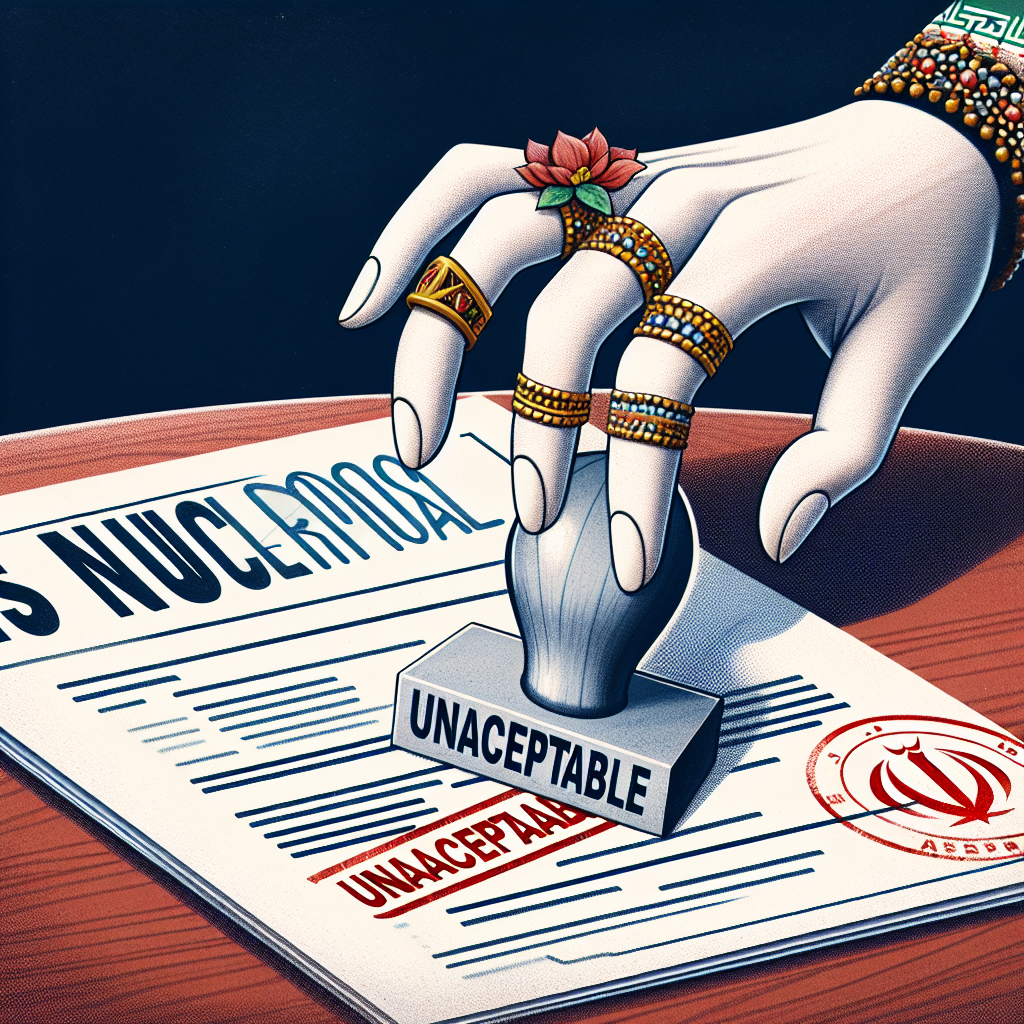Iran Dismisses US Nuclear Proposal as ‘Unacceptable’
Iran Dismisses US Nuclear Proposal as ‘Unacceptable’
Overview
In a recent development, Iran has rejected a nuclear proposal put forth by the United States, labeling it as “unacceptable.” This move underscores the ongoing tensions and complexities surrounding the nuclear negotiations between the two nations.
Key Points of Contention
- Sanctions Relief: Iran demands comprehensive sanctions relief, which the US proposal reportedly fails to address adequately.
- Nuclear Program Limitations: The US seeks stringent limitations on Iran’s nuclear activities, which Iran views as excessive and infringing on its sovereignty.
- Verification Measures: Enhanced verification measures proposed by the US are seen by Iran as intrusive and disproportionate.
Iran’s Stance
Iran maintains that any agreement must respect its rights under international law and provide tangible economic benefits. The Iranian government insists on a balanced approach that ensures mutual compliance and respect.
US Position
The United States aims to prevent Iran from developing nuclear weapons, advocating for a robust framework that includes strict monitoring and compliance measures. The US remains open to dialogue but emphasizes the need for Iran to adhere to international norms.
Implications for Future Negotiations
- Diplomatic Strain: The rejection could lead to increased diplomatic strain, complicating future negotiations.
- Regional Stability: The impasse may impact regional stability, with potential ripple effects on global security.
- International Involvement: Other nations may play a more active role in mediating the dispute to prevent escalation.
Conclusion
The dismissal of the US nuclear proposal by Iran highlights the significant challenges in reaching a mutually acceptable agreement. Both nations remain at an impasse, with critical issues such as sanctions relief and nuclear program limitations at the forefront. The path forward will require careful diplomacy and a willingness to compromise to ensure regional and global security.






































